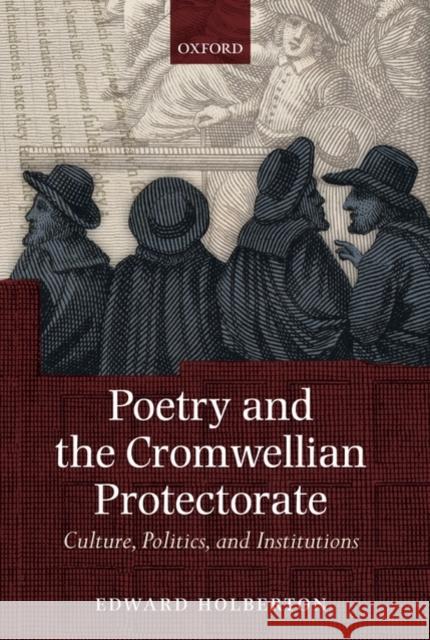Poetry and the Cromwellian Protectorate: Culture, Politics, and Institutions » książka
Poetry and the Cromwellian Protectorate: Culture, Politics, and Institutions
ISBN-13: 9780199544585 / Angielski / Twarda / 2008 / 256 str.
The Cromwellian Protectorate was a period of innovation in poetry and drama, as well as constitutional debate. This new account of the period focuses on key cultural institutions -- Parliament, an embassy to Sweden, Oxford University, Cromwell's state funeral -- to examine this poetry's relationship with a culture in transformation and crisis.
Edward Holberton shows that the Protectorate's instabilities helped to generate lively and innovative poetry. Protectorate verse explores the faultlines of a culture which ceaselessly contested the authority of its own institutions, including the office of Protector itself. Poetry by Andrew Marvell, Edmund Waller, William Davenant, and John Dryden, contributed to a vibrant poetic culture which embraced diverse forms and occasions: masques for the weddings of Cromwell's daughters, diplomatic poems to Queen Christina of Sweden, naval victories, civic pageants, and university anthologies in celebration of a peace treaty. Many of these texts prove difficult to align with established ideas of the political and cultural contests of the age, because they become entangled with cultural institutions which could no longer be taken for granted, and were in many cases transforming rapidly, with far-reaching historical consequences.
Poetry and the Cromwellian Protectorate asks how poetry confronted questions that were complicated by institutional practices, how poets tried to square their wider cultural sympathies with their interests in a particular parliamentary or university crisis, and how changes in institutions afforded poets critical insights into their society's problems and its place in the world. The readings in this book challenge previous representations of Protectorate culture as a phase of conservative backsliding, or pragmatic compromise, under a quasi-monarchical order. Protectorate verse emerges as nuanced and vital writing, which looks beyond the personality of Oliver Cromwell to the tensions that shaped his power. Poetry and the Cromwellian Protectorate argues that it is precisely through being contingent and compromised that these poems achieve their vitality, and become so revealing.











